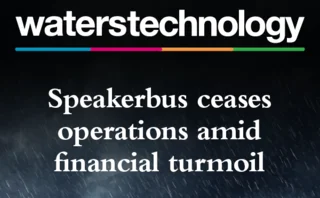The Two-Day Maneuver

At least, that was the finding of a report from the Boston Consulting Group, commissioned by the Depository Trust and Clearing Corporation (DTCC), on cost benefits for moving to T+2 or T+1 in the US. The group estimates that T+2, that is, settlement two days after transaction, will cost around $550 million industry-wide to implement, which includes systems revamp, end-to-end testing and other areas. The savings are enormous, though, with a clawback of the investment estimated within three years. Operational cost savings per annum are estimated at $170 million, and clearing fund reductions─of particular interest to broker-dealers─are around $25 million annually. Furthermore, the reduction in risk exposure for unguaranteed buy-side trades is $200 million.
T+1, though, is a different story. Recouping investment on that, which is placed at $1.7 billion, will take around 10 years for only $5 million in additional annual savings on operational costs, and an additional $10 million on clearing fund reductions. Given, from the group's sample base, around 68 percent of respondents favor T+2, it seems likely that T+1 will remain a long-term goal at best for now. There is also a healthy degree of skepticism around how much behavior would actually be modified for T+1, although the clawback period could be halved in a best-case scenario.
Risk and Reduction
The reasons behind this support are clear enough. The buy side wishes to attenuate its exposure to long settlement cycles, while the sell side wants the clearing fund reductions, processing efficiency and risk reduction. Furthermore, harmonization with Europe and across asset classes is seen as important.
I've had many, many conversations with people from all through the spectrum of financial services on the topic of settlement shortening. I've yet to find many who fully oppose it, whether it's on the institutional side or the retail side, large or small. Some are concerned about the costs, of course─a large institutional broker-dealer will be looking at a bill of around $4.5 million for systems and testing─but the idea itself is just common sense.
Indeed, it's quite remarkable that in an industry where trades in other markets can be conducted in microseconds, and data can be transmitted by microwave, it still takes three days to settle.
It's quite remarkable that in an industry where trades in other markets can be conducted in microseconds, and data can be transmitted by microwave, it still takes three days to settle.
Rocky Road
Even if this goes ahead right now, though, there won't be settlement in T+2 by Christmas. The report estimates that it will take around three years for systems and participants to be ready for T+2, with an "aspirational" move to T+1 possible four or five years after the move to T+2. Don't even mention T+0 yet, pal.
As for reasons why it would take so long for a single day for settlement, the report says that tangible behavioral change in trade date compliance would be necessary, along with real-time processing. Psychological as well as technological, then, which is never an easy shift to accomplish. Just ask any modern-day cloud evangelist.
To talk T+2, T+1 and settlement in any flavor, please feel free to e-mail me at james.rundle@incisivemedia.com or give me a call on +44207 316 9811.
Only users who have a paid subscription or are part of a corporate subscription are able to print or copy content.
To access these options, along with all other subscription benefits, please contact info@waterstechnology.com or view our subscription options here: https://subscriptions.waterstechnology.com/subscribe
You are currently unable to print this content. Please contact info@waterstechnology.com to find out more.
You are currently unable to copy this content. Please contact info@waterstechnology.com to find out more.
Copyright Infopro Digital Limited. All rights reserved.
As outlined in our terms and conditions, https://www.infopro-digital.com/terms-and-conditions/subscriptions/ (point 2.4), printing is limited to a single copy.
If you would like to purchase additional rights please email info@waterstechnology.com
Copyright Infopro Digital Limited. All rights reserved.
You may share this content using our article tools. As outlined in our terms and conditions, https://www.infopro-digital.com/terms-and-conditions/subscriptions/ (clause 2.4), an Authorised User may only make one copy of the materials for their own personal use. You must also comply with the restrictions in clause 2.5.
If you would like to purchase additional rights please email info@waterstechnology.com
More on Trading Tech
Bloomberg integrates AI summaries into Port
One buy-side user says that while it’s still early for agentic tools, they’re excited by what they’ve seen so far.
Larry Fink: ‘We need to be tokenizing all assets’
The asset manager is currently exploring tokenizing long-term investment products like iShares, with an eye on non-financial assets down the road.
Examining how adaptive intelligence can create resilient trading ecosystems
Researchers from IBM and Wipro explore how multi-agent LLMs and multi-modal trading agents can be used to build trading ecosystems that perform better under stress.
S&P Global partners with IBM, Eventus launches Frank AI, Tradeweb expands algo execution abilities, and more
The Waters Cooler: Arcesium makes waves with Aquata Marketplace, NYSE Cloud flows into Blue Ocean Technologies, and more in this week’s news roundup.
Robinhood looks to ‘Chaos Monkey’ for op resilience playbook
As firms look to break down silos across business divisions to bolster operational resilience, the US broker is ditching emails, while utilizing chaos engineering and automating everything in sight.
Bank of America’s GenAI plan wants to avoid ‘sins of the past’
Waters Wrap: Anthony spoke with BofA’s head of platform and head of technology to discuss how the bank is exploring new forms of AI while reducing tech debt and growing interoperability.
TMX Group buys Verity, Deutsche Börse puts market data on-chain, and more
The Waters Cooler: The Texas Stock Exchange is SEC-approved, FalconX launches 24/7 access to OTC crypto options, and the CFTC needs a chair.
WatersTechnology latest edition
Check out our latest edition, plus more than 13 years of our best content.







